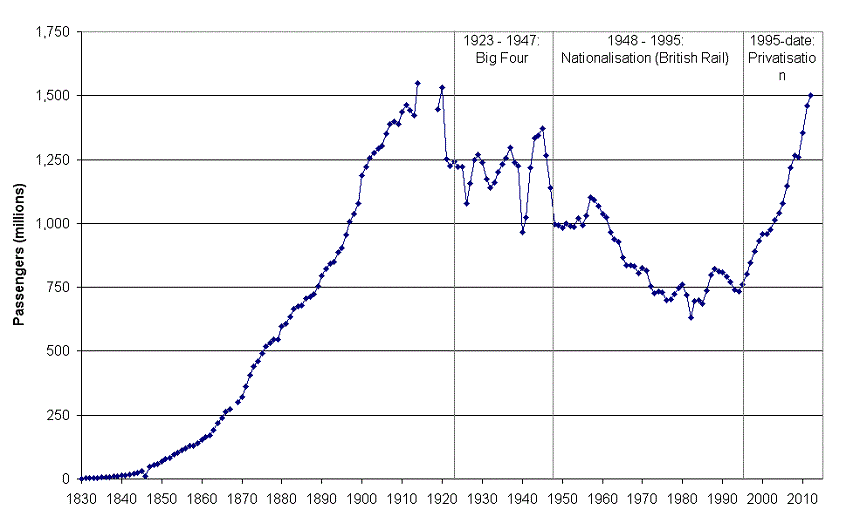At the Adam Smith Institute blog, Ben Southwood asks the question “What would we consider a successful railway system?”
Under many measures, the railways have performed remarkably since privatisation. It is not surprising that the British public would nevertheless like to renationalise them, given how ignorant we know they are, but it’s at least slightly surprising that large sections of the intelligentsia seem to agree.
Last year I wrote a very short piece on the issue, pointing out the basic facts: the UK has had two eras of private railways, both extremely successful, and a long period of extremely unsuccessful state control. Franchising probably isn’t the ideal way of running the rail system privately, but it seems like even a relatively bad private system outperforms the state.
Short history: approximately free market in rail until 1913, built mainly with private capital. Government control/direction during the war. Government decides the railways aren’t making enough profit in 1923 and reorganises them into bigger regional monopolies. These aren’t very successful (in a very difficult macro environment) so it nationalises them — along with everything else — in the late 1940s.
By the 1960s the government runs railways into the ground to the point it essentially needs to destroy or mothball half the network. Government re-privatises the railways in 1995 — at this point passenger journeys have reached half the level they were at in 1913. Within 15 years they’ve made back the ground lost in the previous eighty.




